Discover Italy: A Dream Retirement Destination
Italy, a land of history, art, and culinary delights, is an ideal destination for retirees looking for a rich and fulfilling lifestyle. From the picturesque Tuscan countryside to the bustling streets of Rome, Italy offers a diverse and culturally enriching experience for retirees.
Urban and Coastal Living:
Rome, the capital, provides a vibrant urban lifestyle filled with world-renowned historical landmarks, bustling markets, and lively piazzas. Alternatively, coastal towns like Sorrento offer tranquil seaside living with spectacular views of the Mediterranean.
Leisure and Recreation:
Italy is famous for its wine regions such as Tuscany, where retirees can explore vineyards and enjoy local delicacies. The Amalfi Coast is perfect for nature lovers, offering scenic hikes and breathtaking views.
Relaxation and Comfort:
Italy's cost of living varies by region, with more affordable options in the south compared to the northern cities. The combination of excellent healthcare, relaxed pace of life, and welcoming culture makes Italy an attractive choice for retirees.

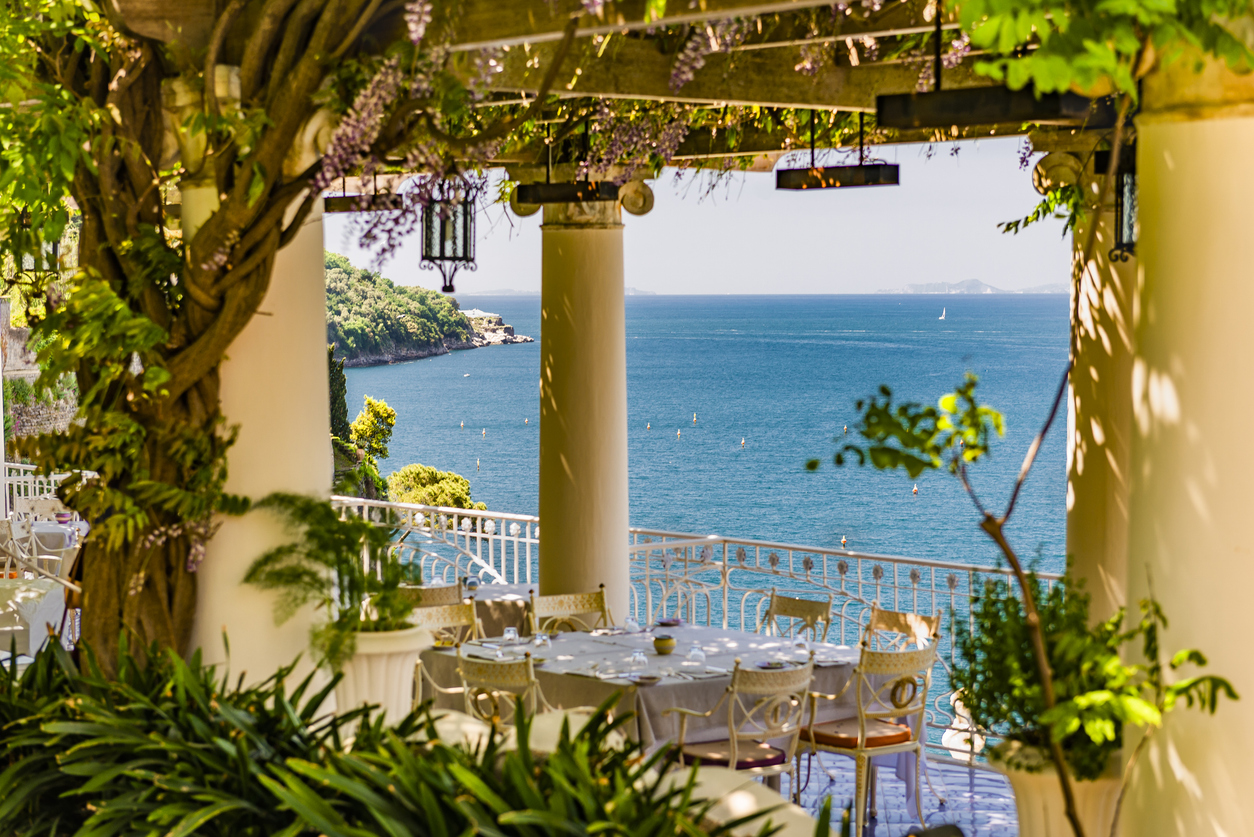
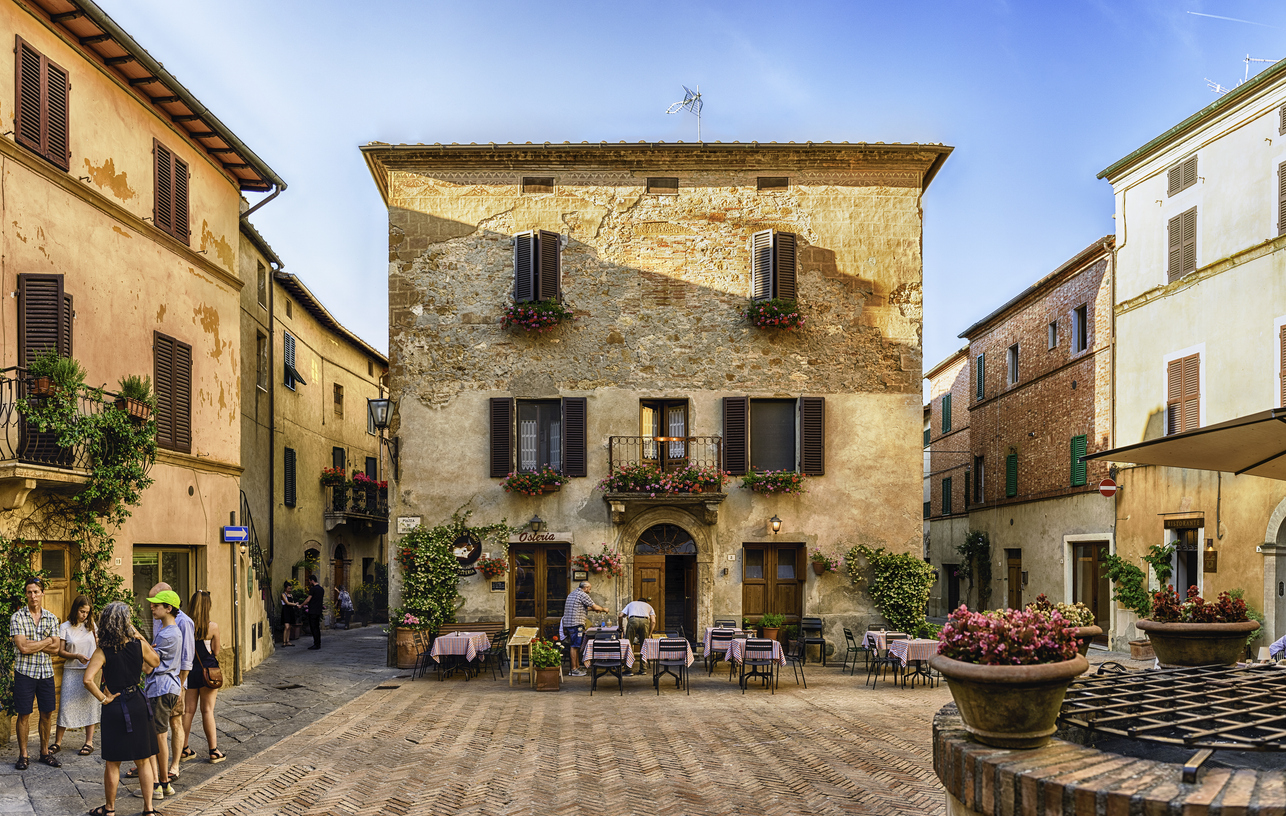
Visa Requirements
Retiring in Italy requires obtaining an elective residency visa, which permits non-EU citizens to reside in the country without working. Applicants must demonstrate sufficient financial resources, proof of accommodation, and health insurance coverage.
Application Process:
- Documentation: Applicants need to provide financial statements, a lease or property ownership document, a police clearance certificate, and health insurance coverage.
- Financial Requirements: Applicants must prove they have the financial means to support themselves, typically through pensions or investments.
- Application Submission: The application must be submitted in person at the Italian consulate in the applicant's country of residence. Here is a link to the relevant Italian consulate.
Renewal and Permanent Residency:
The visa allows an initial one-year stay, renewable annually, eventually leading to permanent residency.

Qualify for a Passport
After residing in Italy for ten years, retirees may apply for citizenship. Individuals with Italian ancestry or spouses of Italian citizens may be eligible for expedited citizenship.
EU/Schengen Benefits:
Holding an Italian passport grants freedom of movement across EU and Schengen Area countries, making travel and living arrangements within Europe convenient.
Health Insurance
Retirees in Italy must have health insurance that provides comprehensive coverage. Italy's public healthcare system, Servizio Sanitario Nazionale (SSN), offers high-quality services, but non-EU retirees need private health insurance until they become eligible to join the SSN.
Private Health Insurance Options:
Private health insurance plans are available through various international and local providers, offering different levels of coverage based on needs and budget. These plans may include hospitalization, outpatient services, emergency care, and specialist visits. It's essential to choose a plan that meets the requirements for visa approval and provides coverage equivalent to that of the SSN.
Some international health insurance providers include:
Local Italian insurance companies offering health plans include:
Joining the SSN:
Once retirees become residents, they may be eligible to join the SSN by paying an annual fee. The SSN provides access to comprehensive healthcare services, including doctor visits, hospital care, and prescription medications. The cost of joining the SSN can vary depending on income and residency status. For more information, visit the official SSN website: Ministry of Health - Healthcare in Italy.
Healthcare Quality:
Italy's healthcare system is known for its quality, with well-trained medical professionals and modern facilities. Many regions have English-speaking doctors, especially in areas popular with expats. Public healthcare is available at a low cost, but private healthcare offers shorter wait times and more personalized care.
Key Considerations:
- Plan Ahead: Ensure you have valid health insurance before applying for the elective residency visa. Check the visa requirements at the Italian Ministry of Foreign Affairs.
- Coverage: Make sure your private health insurance covers all potential healthcare needs, including emergencies, chronic conditions, and routine check-ups.
- Local vs. International Providers: Compare local Italian insurance providers with international options to determine the best coverage and cost for your needs.
Cost of Living
The cost of living in Italy varies significantly depending on the region and lifestyle choices. Here's a more detailed breakdown:
Housing
- Northern Cities: Cities like Milan, Venice, and Florence are among the most expensive. Renting a one-bedroom apartment in the city center can cost between €1,000 to €1,500 per month. Outside the city center, prices drop to around €800 to €1,200.
- Southern Regions and Small Towns: In areas like Sicily, Calabria, or small towns in Tuscany, you can find similar apartments for €400 to €700 per month. Purchasing property is also more affordable in these areas, making it an attractive option for retirees.
Utilities
- Basic utilities (electricity, heating, cooling, water, garbage) average around €150 to €200 per month for a standard apartment.
- Internet services cost approximately €25 to €40 per month.
Groceries
- Italy is renowned for its fresh produce and local markets. Monthly grocery bills for a couple can range from €300 to €450, depending on shopping habits and dietary preferences.
- Local markets often offer fresh fruits, vegetables, meats, and cheeses at lower prices than supermarkets.
Transportation
- Public transportation is efficient in urban areas. A monthly pass costs about €35 to €50.
- Fuel prices are around €1.60 per liter, and owning a car includes additional costs like insurance and maintenance.
- Train travel between cities is convenient and relatively affordable, especially with regional trains.
Entertainment and Dining Out
- Dining at a mid-range restaurant might cost around €20 to €35 per person.
- Italy offers numerous free or low-cost cultural events, museums, and historical sites.
- Cinema tickets average around €8 to €10.
Healthcare
- Italy has a high-quality public healthcare system accessible to residents, including expatriates with residency status.
- Public healthcare is either free or involves minimal co-payments. Private healthcare is available and more affordable compared to other Western countries.
- Clothing: Prices are comparable to other European countries, with both affordable and high-end options.
- Recreation and Sports: Gym memberships average around €40 to €70 per month.
- Miscellaneous: Personal care items and household supplies might add another €100 to €150 to monthly expenses.
Summary
- Total Monthly Expenses: A comfortable retirement in Italy might require a monthly budget ranging from €1,500 to €2,500, depending on location and lifestyle.
- Regional Differences: Living in the south or in rural areas can significantly reduce costs.
- Quality of Life: Despite regional cost differences, Italy offers a rich cultural experience, high-quality cuisine, and a relaxed lifestyle valued by many retirees.
Population
Italy, with a population of approximately 59 million people, exhibits varied population density across its regions. The country has an average population density of around 200 people per square kilometer, which is relatively high compared to many other European nations.
The most densely populated areas include major cities such as Rome, Milan, and Naples, where urbanization and economic opportunities attract large numbers of residents. In contrast, rural areas, particularly in regions like Basilicata and Molise, experience much lower population densities.
Coastal areas, especially along the Italian Riviera, the Amalfi Coast, and the islands of Sicily and Sardinia, also see higher population densities due to their popularity among both locals and foreign residents, including retirees and tourists. The northern regions, such as Lombardy and Veneto, are more densely populated due to industrialization and economic development, while the southern regions tend to be less populated.
Italy's population is also characterized by an aging demographic, with a significant proportion of the population over the age of 65. This is due to low birth rates and high life expectancy, common trends in many developed countries. The aging population has implications for healthcare, social services, and the economy.
The country's cultural and historical heritage, along with its pleasant climate, make it an attractive destination for expatriates and retirees from around the world, contributing to the diversity of its population in certain areas.
Transportation
Traveling to Italy from US/Canada
Direct flights from the US and Canada to Italy make it convenient for retirees to travel between these countries. Major airlines operate frequent flights to cities like Rome, Milan, and Venice. Check the links below for more details on airlines and flight frequency:
- ITA Airways - Connects various US locations, including New York, Miami, Los Angeles, and Boston directly with Italy.
- Delta Airlines - Offers direct flights from major US cities to Rome and Milan.
- Air Canada - Provides direct services from cities like Toronto and Montreal to Italian destinations.
Exploring Italy and Beyond
Italy boasts an extensive travel infrastructure, facilitating easy exploration across the country and to neighboring European nations. The integrated network of air, train, and bus services offers seamless travel possibilities:
- Air Travel: Domestic flights connect major cities and tourist destinations within Italy swiftly.
- Train Travel: Trenitalia and Italo offer high-speed train services connecting major cities in hours. The scenic routes are an added bonus.
- Bus Travel: Extensive bus networks, including companies like FlixBus, cover even the most remote areas, offering an economical way to travel.
Additionally, Italy's location allows easy access to other European countries, making it an ideal base for further exploration.
Activities for Retirees in Italy
Italy offers a wide array of activities suitable for retirees, encompassing serene marina visits, world-class golf courses, delectable dining, enriching museum tours, relaxing cruises, and cultural events.
Marinas and Cruises
Enjoy the serene beauty of Italy's numerous marinas or take a leisurely cruise along the Mediterranean coast. Explore popular marinas like Marina Coppola in Amalfi, known for their high-end facilities and vibrant local scenes.
Golf Courses
Italy is renowned for its picturesque golf courses. Regions like Tuscany and Lombardy offer stunning greens set against beautiful landscapes. You can find more details on specific courses and locations at Italy Golf & More.
Food and Restaurants
Italy's culinary scene offers a rich array of options from traditional trattorias to Michelin-starred restaurants. Explore local cuisines and sophisticated dining experiences across the country. Learn more about Italy's top restaurants at the Michelin Guide Italy.
Museums and Cultural Sites
Delve into Italy's rich history and culture at its numerous museums. The Uffizi Gallery in Florence and the Vatican Museums in Rome are must-visits for art lovers. Discover more about these cultural sites at Uffizi Gallery and Vatican Museums.
Events and Festivals
Engage with local culture through various festivals and events geared towards a more mature audience. Enjoy opera festivals, wine tastings, and other leisurely events that celebrate Italy's traditions and lifestyle. Notable events include the Arena di Verona Opera Festival and the Chianti Classico Wine Festival.
Safety
Italy is generally considered a safe country for both residents and visitors, with a rich cultural heritage and a high quality of life. The nation's effective law enforcement and community-focused policing contribute to its overall safety. However, like any country, it has areas where extra caution is advised.
General Safety Overview
The most common crimes in Italy are non-violent and opportunistic, such as pickpocketing and purse snatching, particularly in crowded tourist areas and on public transportation. Major cities like Rome, Milan, Naples, and Florence attract large numbers of tourists, which can create opportunities for petty criminals. Violent crime is relatively rare and often confined to specific areas that are easily avoidable.
Comparison with Other Countries
Italy's crime rates are comparable to other Western European countries and are generally lower than those in the United States. According to the Global Peace Index, Italy ranks favorably, indicating a stable and peaceful society. While organized crime groups like the Mafia have historical roots in Italy, their activities rarely affect everyday life for residents and are primarily focused on specific regions and industries.
Recommendations for Retirees and Future Retirees
To ensure a safe and enjoyable experience in Italy, retirees and those planning for future retirement should consider the following tips:
- Choose Safe Neighborhoods: Research and select neighborhoods known for their safety and community engagement. In Rome, areas like Trastevere, Prati, and Aventino are considered safe and offer a vibrant atmosphere. In smaller towns and rural areas, crime rates are generally lower.
- Stay Vigilant: Be cautious in crowded places such as markets, train stations, and tourist attractions. Keep personal belongings secure, use anti-theft bags, and avoid displaying valuables like jewelry or expensive electronics.
- Secure Your Home: Invest in good quality locks and consider installing an alarm system. Living in buildings with a doorman or in gated communities can add an extra layer of security.
- Learn the Language: Learning Italian can help you better understand your surroundings, communicate effectively, and integrate into the community, enhancing your overall safety.
- Engage with Locals: Building relationships with neighbors and participating in community activities can provide a support network and keep you informed about local safety concerns.
- Use Reputable Services: When hiring help or using services like taxis and home maintenance, use reputable companies or get recommendations from trusted sources.
- Emergency Services: Familiarize yourself with local emergency numbers. Dial 112 for police, medical emergencies, and fire services throughout Italy.
- Stay Informed: Keep up-to-date with local news and any travel advisories. Be aware of any demonstrations or strikes that may impact transportation or public services.
Terrorism and Public Safety
Italy maintains a high level of vigilance against terrorism, and incidents are rare. The government has effective security measures in place, especially in major cities and around key infrastructure. Stay alert in public places and follow any instructions from local authorities, particularly in crowded areas or during public events.
Healthcare and Safety
Access to high-quality healthcare contributes to overall safety and peace of mind. Italy has an excellent healthcare system, ranked among the top globally. Both public and private healthcare facilities offer reliable services, and emergency medical care is accessible by dialing 118. Ensure you have adequate health insurance coverage to access the best care available.
Natural Disasters
Italy is prone to certain natural disasters, including earthquakes, volcanic activity, and occasional flooding:
- Earthquakes: Regions like Umbria, Abruzzo, and parts of Sicily are more susceptible to seismic activity. Buildings in these areas are constructed to withstand earthquakes, but it's advisable to familiarize yourself with earthquake safety procedures.
- Volcanic Activity: Areas near Mount Vesuvius, Mount Etna, and Stromboli experience volcanic activity. Local authorities monitor these volcanoes closely, and evacuation plans are in place if needed.
- Flooding: Venice and parts of northern Italy can experience flooding, especially during the acqua alta (high water) season in Venice. Staying informed about weather forecasts and local advisories is important.
Transportation Safety
Public transportation in Italy is generally safe and efficient. Be mindful of pickpockets on buses, trams, and trains, particularly on popular routes. When driving, be aware that traffic can be hectic in cities, and rural roads may be narrow and winding. Observe local traffic laws and consider defensive driving courses if you plan to drive regularly.
Cybersecurity
As in any country, be cautious with your personal information online. Use secure internet connections, especially when handling financial transactions, and be wary of phishing attempts and scams. Consider using a VPN for added security when accessing the internet from public Wi-Fi networks.
Conclusion
Italy offers a safe and enriching environment for retirees and those planning for future retirement abroad. By taking standard precautions, choosing safe places to live, and engaging with the local community, you can enjoy all that Italy has to offer with confidence and peace of mind.
Main Locations
Tuscany

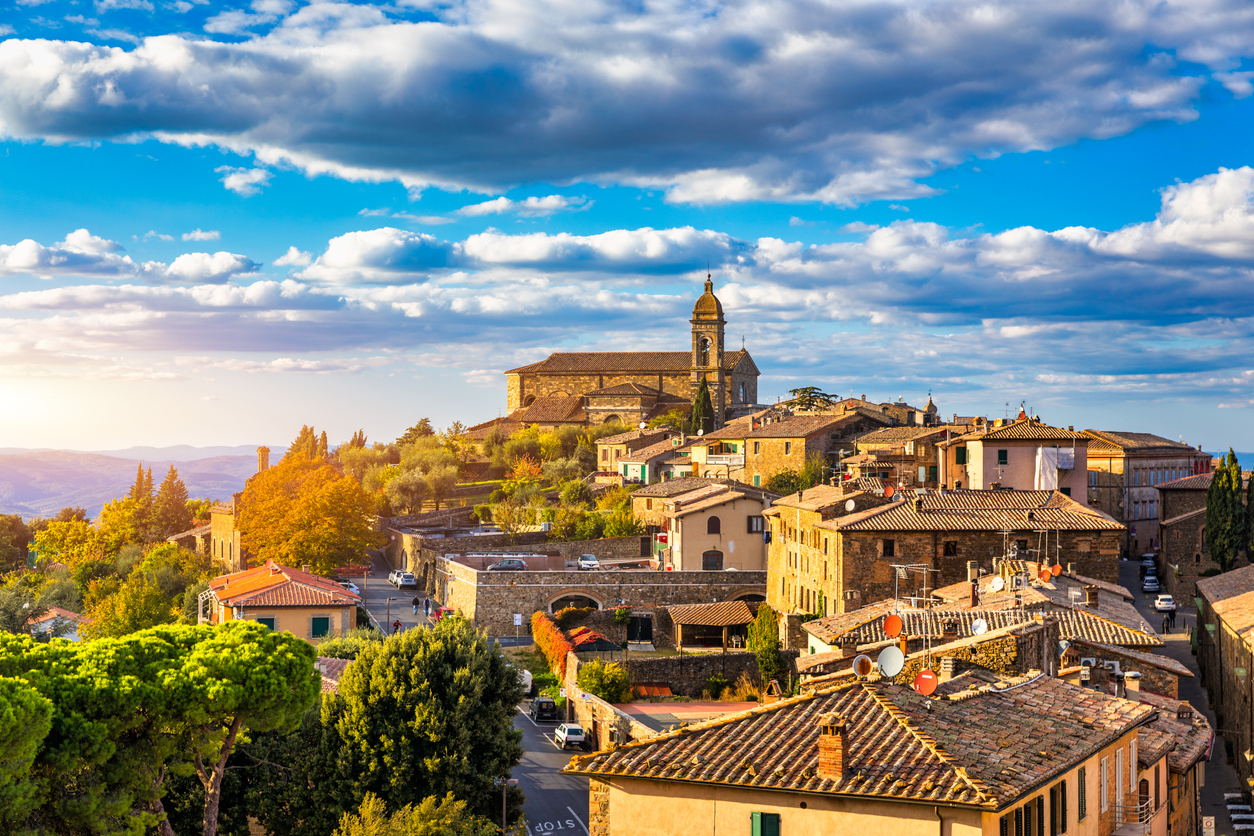
Climate
Tuscany experiences a mild Mediterranean climate with hot summers and cool winters. Average temperatures range from 7°C (45°F) in winter to 30°C (86°F) in summer. The region enjoys plenty of sunshine, making it appealing for those seeking a pleasant climate year-round.
Healthcare
Italy’s healthcare system is highly ranked globally, and Tuscany offers excellent healthcare facilities. The region has both public and private hospitals, with quality medical services accessible to residents. Major hospitals include Careggi University Hospital in Florence and Siena University Hospital.
Main Towns
-
Florence
- Pros: Rich in art, history, and culture. Offers excellent healthcare facilities, vibrant social life, and numerous amenities. International community presence.
- Cons: Higher cost of living and tourist crowds, especially during peak season.
-
Siena
- Pros: Historic charm with medieval architecture, a relaxed atmosphere, and a strong sense of community. Lower cost of living compared to Florence.
- Cons: Smaller city with fewer amenities than larger cities.
-
Lucca
- Pros: Known for its well-preserved Renaissance walls, charming streets, and peaceful environment. Offers a good quality of life.
- Cons: Less nightlife and fewer entertainment options.
-
Pisa
- Pros: Famous for the Leaning Tower, offers historical sites, good healthcare facilities, and convenient transport links.
- Cons: Busy tourist areas can become crowded; less tranquil than smaller towns.
Cost of Living
Renting
- One-bedroom apartment in city center: €700-€1,000 per month
- One-bedroom apartment outside city center: €500-€800 per month
Buying
- Price per square meter in city center: €3,000-€5,000
- Price per square meter outside city center: €2,000-€3,500
Yearly Budget (for a couple)
- Renting: €20,000-€30,000 (including rent, utilities, groceries, transportation, and leisure)
- Buying: €18,000-€25,000 (excluding property purchase costs)
Property Taxes and Mortgage Rates
- Property Taxes: Property taxes in Italy generally range from 0.4% to 0.76% of the property's cadastral value, including IMU (municipal property tax) and TASI (services tax).
- Mortgage Rates: As of 2024, mortgage rates in Italy typically range from 1.5% to 3%, depending on the type of mortgage and the borrower’s profile.
Summary
Tuscany is a desirable destination for retirees due to its rich cultural heritage, pleasant climate, and excellent healthcare. Cities like Florence offer a vibrant lifestyle, while towns like Siena and Lucca provide a more tranquil environment. With a reasonable yearly budget, retirees can enjoy a comfortable life whether they choose to rent or buy a property.
Umbria
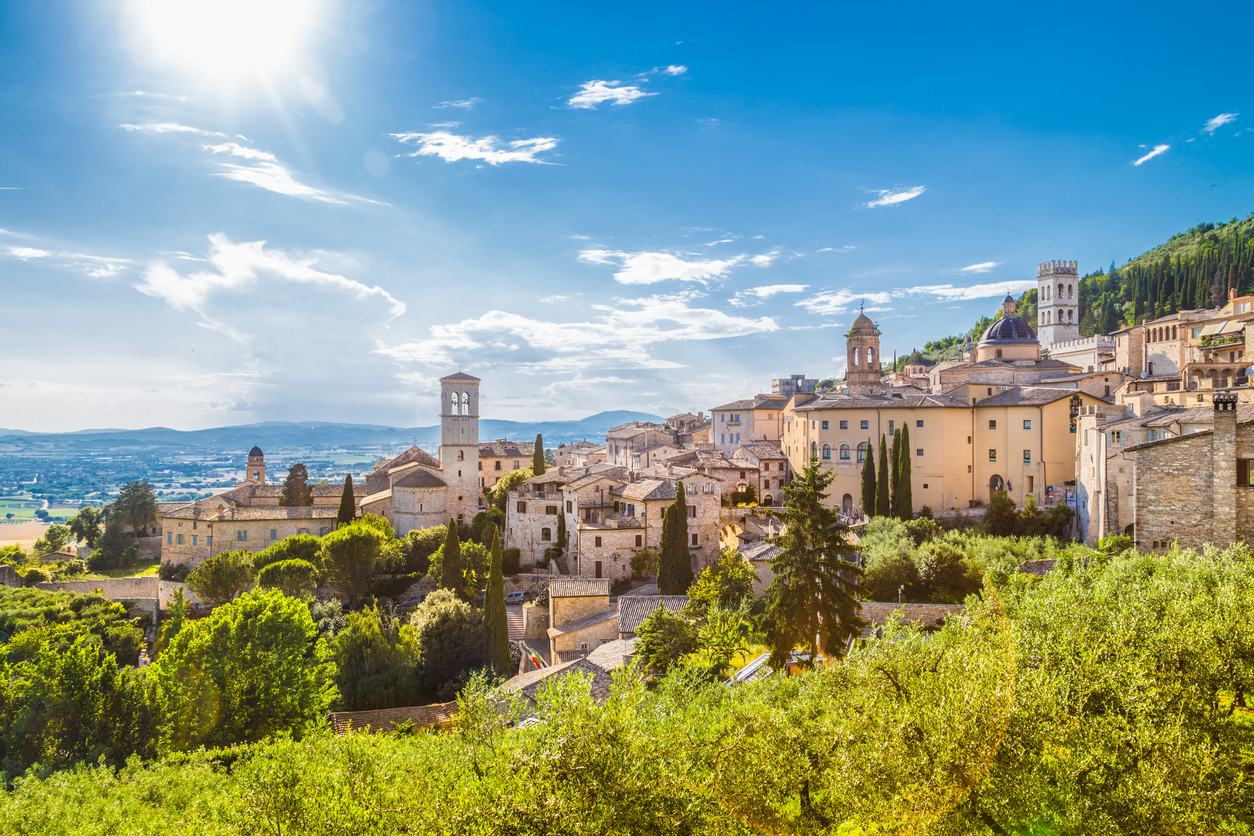
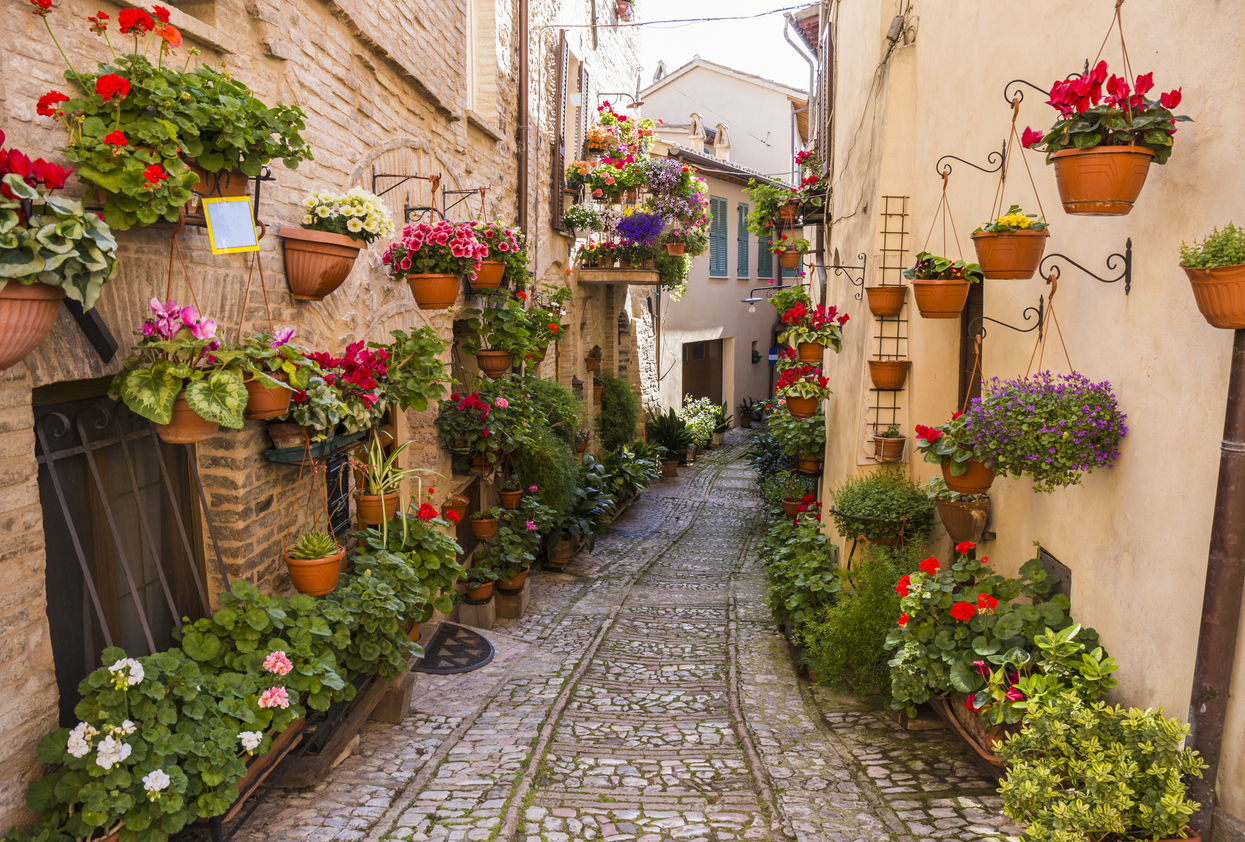
Climate
Umbria has a temperate climate with warm summers and cool winters. Average temperatures range from 5°C (41°F) in winter to 29°C (84°F) in summer. The region is known for its lush landscapes and scenic beauty.
Healthcare
Umbria offers quality healthcare facilities accessible to residents. The region has both public and private hospitals. Major hospitals include Santa Maria della Misericordia Hospital in Perugia and Santa Maria Hospital in Terni.
Main Towns
-
Perugia
- Pros: Rich in history with medieval architecture, vibrant cultural scene, and university town atmosphere. Affordable cost of living.
- Cons: Less international community compared to larger cities.
-
Assisi
- Pros: Known for its spiritual significance, peaceful environment, and beautiful landscapes. Strong sense of community.
- Cons: Smaller town with limited amenities; can be busy with tourists.
-
Orvieto
- Pros: Picturesque hilltop town with stunning views, historic sites, and a relaxed lifestyle.
- Cons: Limited entertainment options and amenities.
-
Spoleto
- Pros: Rich cultural heritage, hosts the annual Festival dei Due Mondi, and offers a tranquil living environment.
- Cons: Smaller population and fewer services compared to larger towns.
Cost of Living
Renting
- One-bedroom apartment in city center: €400-€600 per month
- One-bedroom apartment outside city center: €300-€500 per month
Buying
- Price per square meter in city center: €1,500-€2,500
- Price per square meter outside city center: €1,200-€2,000
Yearly Budget (for a couple)
- Renting: €15,000-€20,000 (including rent, utilities, groceries, transportation, and leisure)
- Buying: €13,000-€18,000 (excluding property purchase costs)
Property Taxes and Mortgage Rates
- Property Taxes: Similar to other regions, ranging from 0.4% to 0.76% of the property's cadastral value.
- Mortgage Rates: Typically range from 1.5% to 3% as of 2024.
Summary
Umbria offers a tranquil lifestyle with rich history and natural beauty. It is ideal for retirees seeking a peaceful environment and lower cost of living. Towns like Perugia and Assisi provide cultural experiences, while smaller towns offer a close-knit community feel.
Sicily
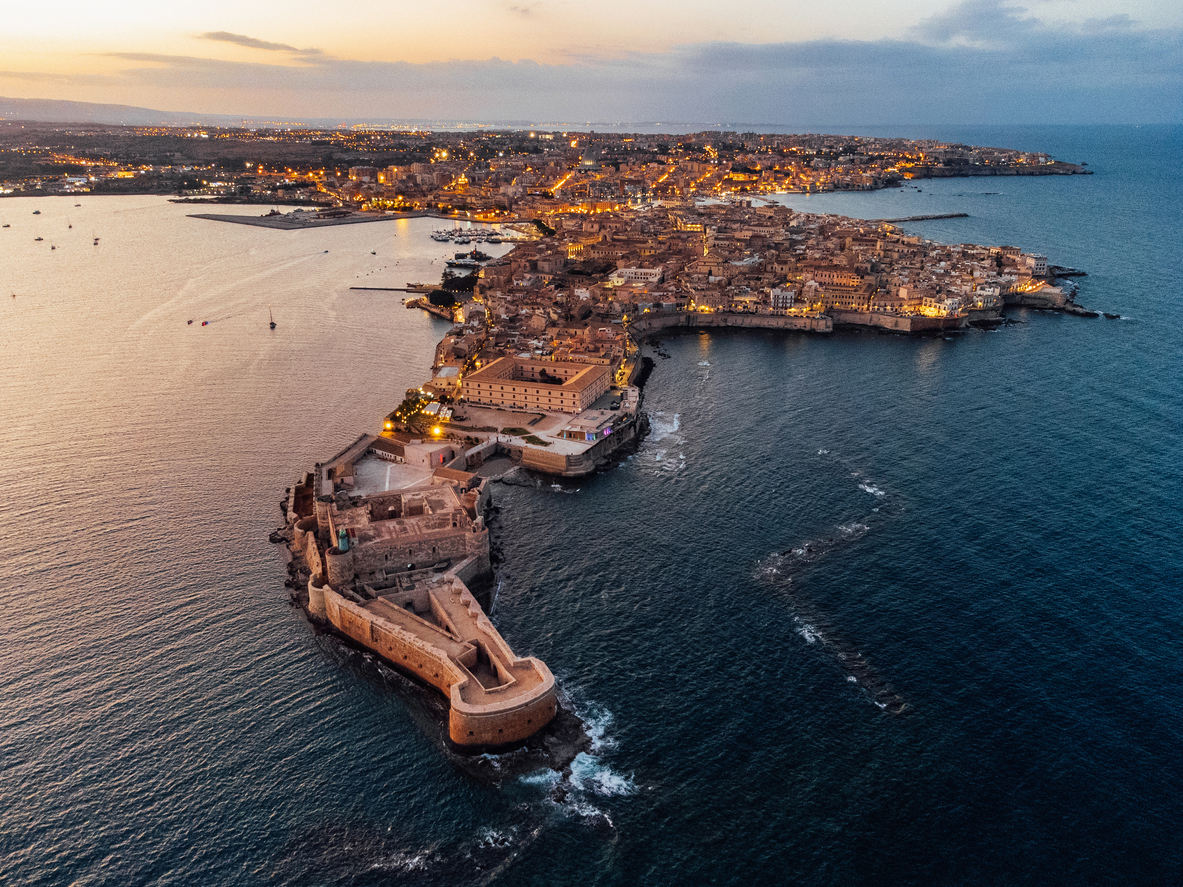
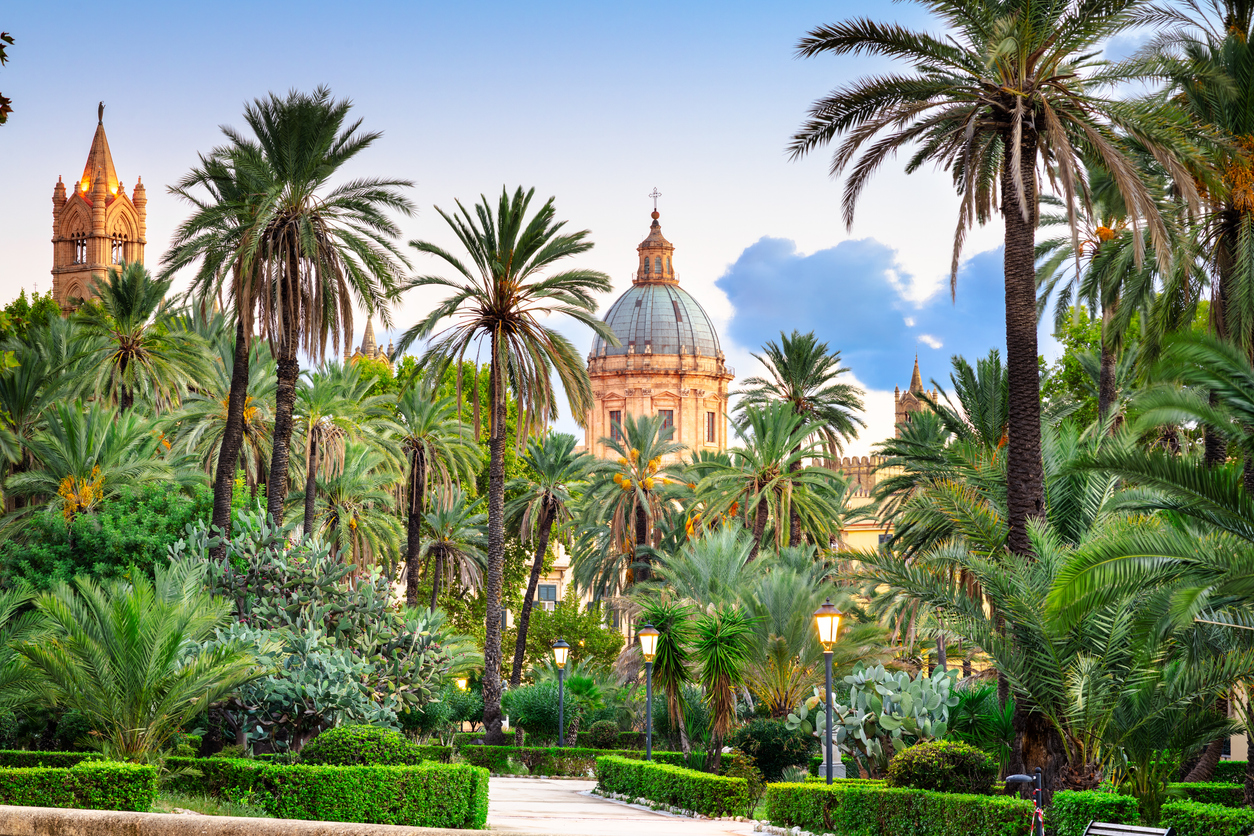
Climate
Sicily enjoys a Mediterranean climate with mild winters and hot summers. Average temperatures range from 10°C (50°F) in winter to 30°C (86°F) in summer. The island boasts over 300 days of sunshine per year.
Healthcare
Sicily provides access to both public and private healthcare facilities providing general and specialty services. Major hospitals include Policlinico Universitario in Palermo and Policlinico Vittorio Emanuele in Catania.
Main Towns
-
Palermo
- Pros: Rich cultural heritage, vibrant street life, affordable cost of living, and access to beaches.
- Cons: Urban congestion, higher crime rates compared to other regions.
-
Taormina
- Pros: Picturesque town with stunning views of the sea and Mount Etna, historic sites, and a peaceful atmosphere.
- Cons: Can be touristy and more expensive during peak season.
-
Syracuse
- Pros: Rich in history with ancient Greek ruins, a charming old town, and coastal beauty.
- Cons: Smaller town with fewer amenities than larger cities.
-
Cefalù
- Pros: Coastal town with beautiful beaches, a medieval cathedral, and a relaxed lifestyle.
- Cons: Limited healthcare facilities and amenities.
Cost of Living
Renting
- One-bedroom apartment in city center: €400-€600 per month
- One-bedroom apartment outside city center: €300-€500 per month
Buying
- Price per square meter in city center: €1,200-€2,500
- Price per square meter outside city center: €900-€1,500
Yearly Budget (for a couple)
- Renting: €12,000-€18,000 (including rent, utilities, groceries, transportation, and leisure)
- Buying: €10,000-€15,000 (excluding property purchase costs)
Property Taxes and Mortgage Rates
- Property Taxes: Similar to other regions, ranging from 0.4% to 0.76% of the property's cadastral value.
- Mortgage Rates: Typically range from 1.5% to 3% as of 2024.
Summary
Sicily is an attractive destination for retirees seeking a warm climate, affordable living, and rich cultural experiences. While healthcare facilities may not be as advanced, the cost of living is lower, and the island offers a relaxed lifestyle with beautiful scenery.

